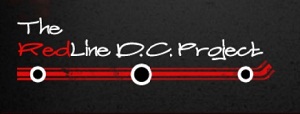Saaret Yoseph has been riding the Red Line since she was a kid, and for years she casually observed the graffiti scrawled along the route from Silver Spring to Union Station. But then she became curious about it. Who was doing this?
“Around last spring or last summer, I kept seeing this one name, Ju,” she says. “He would always have images next to his tags, like Fresh Prince of Bel-Air or Kanye West bears, and I just got really, really curious about this one tag. It became kind of a personal hunt but at the same time I became very curious as to what other people thought about it.”
She started talking with a variety of folks: graffiti writers, artists, community organizers, D.C. officials and others, and the conversations weren’t just about art. Discussions about public space, access, revitalization versus blight and D.C.’s changing neighborhoods were all intertwined with the graffiti seen on the Red Line. Thus began The Red Line D.C. Project, Yoseph’s documentary project and associated blog that proclaims “in Washington, D.C., the most accessible art form isn’t in the museums. it’s on the Metro.”
“I’m hoping I’m representative of other commuters who want to have a talk back. The way graffiti is, it’s kind of this one-way conversation,” Yoseph says.
She is now using the project as a way to launch a dialogue (it’s partially funded by nonprofit Words Beats & Life) and she has even folded it into her master’s coursework at Georgetown University, where she is earning a degree in communication, culture and technology.
Yoseph sees graffiti “almost in the same way I look at street signs. For me, it’s what’s the difference between this and looking at Ben Ali Way? It’s really just a marker of the people who have been there and existing in that space.”
One of the things that has most surprised Yoseph is the demographic profile of many — but not all — of the Red Line’s most prominent graffiti writers: white teens or young adults living in Maryland suburbs.
As for why that’s the case, Yoseph isn’t so sure.
“There’s plenty more people to talk to, and more graffiti writers I want to chat with. I’m kind of an outsider coming into it,” she says. “For me, it’s almost about asking ‘why?’ to everything.”



